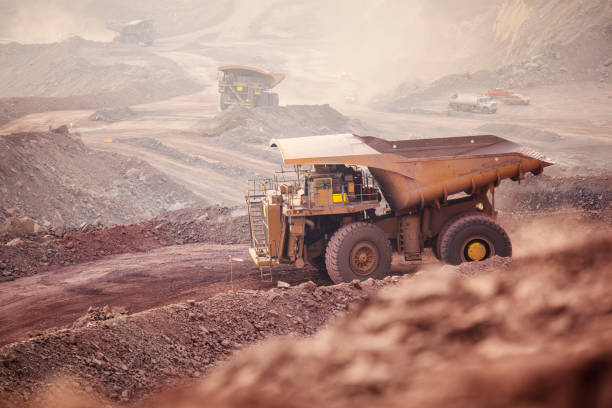The United States should consider carefully which countries it chooses to rely on for its metals and minerals, a mining industry expert recently told an Arizona Manufacturers Council audience.
Adam Hawkins, who for decades has served as a consultant for mining companies, says the concept of “mineral dependency,” which refers to the role that minerals will play in the country’s ability to maintain a competitive edge as a global superpower, should influence strategic decision making, public policy affecting domestic mineral production, and the country’s move towards a sustainable supply chain.
“Where do we buy our metals from? People will tell you the stewardship of their tomato but not where the metals in their phones come from,” Hawkins said, contrasting consumers’ knowledge of the food supply chain compared to the supply chain for critical materials.
Misconceptions about mining
Hawkins says misconceptions about where our products come from and about how integral mining is to the production of many products we deem essential to our everyday lives is the impetus behind many unfounded myths related to mining. These myths are often touted by elected officials and public figures who lack an understanding of the mining industry.
Hawkins said, for example, that the notion the U.S. doesn’t need new mines and that a reliance on recycling will secure the nation’s critical materials needs is unfounded.
A recent report covering the mineral intensity of the transition to cleaner energy sources showed that demand for certain key minerals will skyrocket more than 500% by the year 2050. The demand for copper, cobalt, lithium, nickel, and other metals could not be satisfied by the “circular economy” envisioned by advocates of near total reliance on recycling.
“Biden has promised to convert the entire U.S. government fleet – about 640,000 vehicles – to EV’s (electric vehicles),” Hawkins said. “That plan alone could require a 12-fold increase in U.S. lithium production by 2030, according to Benchmark Minerals Intelligence, as well as an increase in output of domestic copper, nickel, and cobalt.”
Our current mineral dependency
The United States imports more than 50% of its metals and minerals, and generally these come from Canada, Mexico and sometimes Chile and Australia. Hawkins explained that these nations are generally aligned politically with the U.S. and have very strong regulatory environments.
“China is where the scary stuff begins” Hawkins said. “The nation is not necessarily aligned with our political and domestic security objectives. Why would we then give them our dependency on rare earth metals?”
The U.S. was 100% net import reliant on rare-earth metals in 2018, importing an estimated 11,130 metric tons of compounds and metals. Eighty percent of those imports were sourced from China.
This fact is especially daunting when faced with the reality that rare-earth metals are used in nearly all advanced technological devices. Smartphones, digital cameras, computer hard disks, light sources, and televisions all rely upon rare-earth metal imports.
“We are currently unprepared to weather a critical trade embargo,” Hawkins said.
Nickel, a metal used primarily to make other metals stronger and better suited for extreme temperatures and corrosive environments, is an important material for many industries including aerospace. Unfortunately, Russia remains the world’s leading supplier of nickel.
Likewise, China is the leading producer of titanium, a metal required in the production of aircraft among other things.
Building a sustainable supply chain
“Look at our own inventory of short, medium, and long-term mineral opportunities,” Hawkins said. “Right now, we have more capital to develop new mining projects than there are projects; we have to make sure that they have a soft landing and are pursuing material.”
Hawkins believes the president should use his powers under the 1950 Defense Production Act to order corporations to produce and supply specific materials to bolster and support national defense.
He pointed to a bipartisan bill that “would make it easier for nonprofits and other outfits to help clean up abandoned hard rock mines by wiping away past liabilities for acquiring the sites.”
“We should also incentivize domestic production of rare earth and other critical minerals,” he said. “This is actually the way China has been able to dominate the rare-earth metals market.”
















Add comment